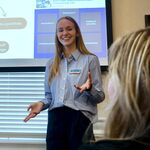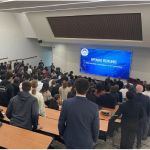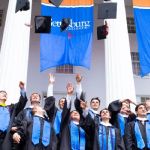
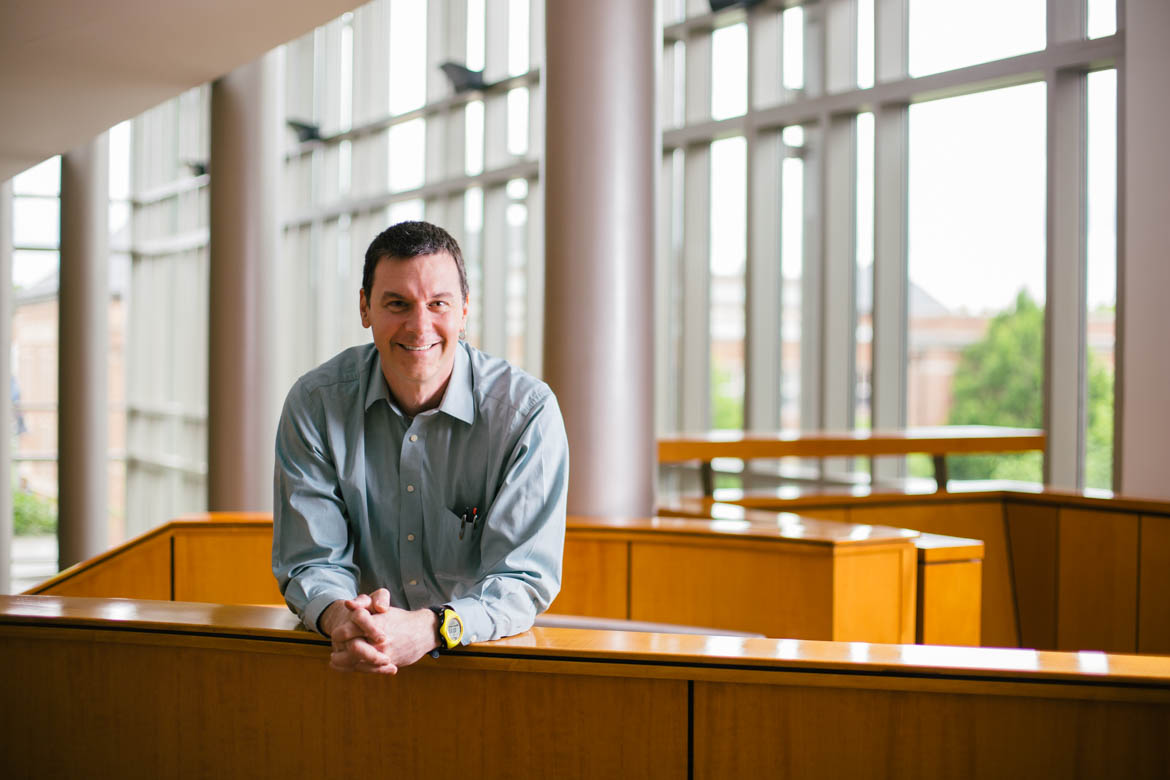
Prof. Matthew Kittelberger graduated from Harvard University without a clear sense of what he wanted to do in his career, so he decided to join the Peace Corps. He taught science, math, English, and agriculture at an all-boys boarding high school in the country of Malawi in southern Africa.
“And it was there that I discovered the joys, and the challenges, of being a teacher," he said.
That was in 1992. Now, Kittelberger is planning to return to Malawi with his family, this time on a Fulbright Scholar award. For nine months starting in January, he will be teaching science and developing science curricula at Chancellor College of the University of Malawi in Zomba. At Chancellor, Kittelberger says 70 percent of students studying biology end up pursuing careers as secondary school teachers. By preparing these future teachers, he hopes to impact the nature of science education in Malawi.
“I’ve always wanted to connect with Malawi again in some way,” he said.
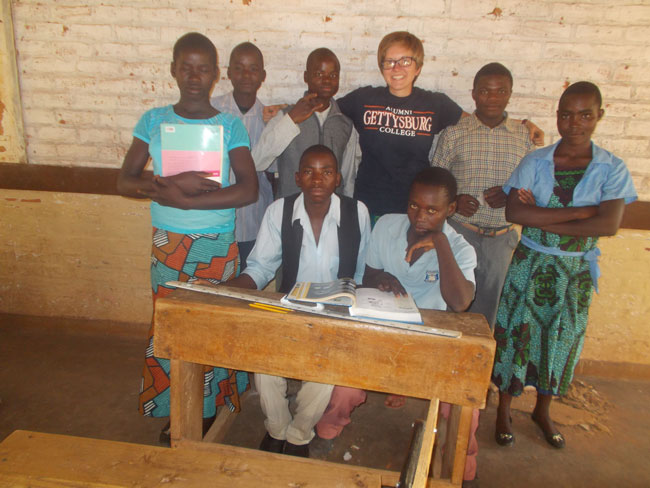 When Kittelberger was putting together his application for the Fulbright, he reached out to one of his former advisees, Christine Serwan ’13. Kittelberger helped Serwan when she was applying to the Peace Corps during her senior year. Serendipity placed Serwan in Malawi, and now Kittelberger was curious to learn her perspective.
When Kittelberger was putting together his application for the Fulbright, he reached out to one of his former advisees, Christine Serwan ’13. Kittelberger helped Serwan when she was applying to the Peace Corps during her senior year. Serendipity placed Serwan in Malawi, and now Kittelberger was curious to learn her perspective.
“Pretty much from day one of my knowing I was heading to Malawi, Dr. Kittelberger started talking about how he could reconnect to Malawi, and maybe even get back there after all this time away,” said Serwan.
“We stayed in touch via email while she was in Malawi and spent a lot of time talking about her experience and my experiences in the country,” Kittelberger said. “It became clear that a lot of the challenges of teaching high school science in Malawi hadn’t changed all that much in the intervening years.”
That got Kittelberger thinking about how he might work on that. He figured the logical place to start would be with teachers.
“Better teacher training means improving Malawi’s capacity,” said Kittelberger. “Improving the quality of teachers teaching secondary science could go a long way.”
“The students of Malawi are beyond lucky they are going to have someone like [Kittelberger] teaching them,” said Serwan. “He even still remembers some Chichewa, the local language. I'm excited to see where his journey takes him this time and hopefully will be able to visit him while he is there.”
Their Malawi bond is an extension of the two-way teaching-mentoring relationship that began at Gettysburg. “I can honestly say I would not be where I am today had I not had [him] as an advisor and mentor, and I am so glad to be able to stay connected to him now as colleagues through our experiences in Malawi,” said Serwan.
One of the teaching methods Kittelberger said he hopes to bring to Malawi is a focus on active learning. In Malawi, the traditional British model of teaching is lecture-based and primarily focused on memorization.
“[In the United States], science education has moved away from lecturing and passive pedagogy where students sit and listen,” said Kittelberger. “Students learn better when they are active participants in their learning. The hope is to merge some of my experience with more active learning pedagogies with the curriculum [in Malawi].”
In Malawi, Kittelberger—whose research focuses on the evolution of brain circuits involved in vocal and social behavior—will teach biochemistry and animal physiology. While he is there, Kittelberger hopes to make his way to the lakes of the Great Rift Valley to study cichlid fish. They are a family of fish from which scientists have learned a great deal about evolution, including the evolution of social behavior.

But Malawians themselves haven’t been as involved in this work, explains Kittelberger, despite the fact that Malawian cichlids are renowned worldwide as a model system for understanding evolution.
“If I can model some of that for the students who I’m teaching, who are then going off to teach in high schools, they will have a better understanding of how to use local resources to do hands-on biology.”
When Kittelberger returns home, he anticipates the experience will also impact his teaching at Gettysburg.
“[At Gettysburg], we think a lot about how to effectively teach students [from different backgrounds],” he said. “And by having to wrestle with that [in Malawi], I’ll be able to use those lessons when I’m thinking about students and the different strategies I can use here.”
Kittelberger is the third member of Gettysburg’s faculty to earn a prestigious Fulbright Scholar award in the past three years.
The Fulbright Program, which aims to increase mutual understanding between the people of the United States and the people of other countries, is the flagship international educational exchange program sponsored by the U.S. government; it is overseen by The United States Department of State’s Bureau of Educational and Cultural Affairs. Fulbright alumni include 58 Nobel Laureates, 82 Pulitzer Prize winners, 31 MacArthur Fellows, 16 Presidential Medal of Freedom recipients, and thousands of leaders across the private, public and non-profit sectors.
